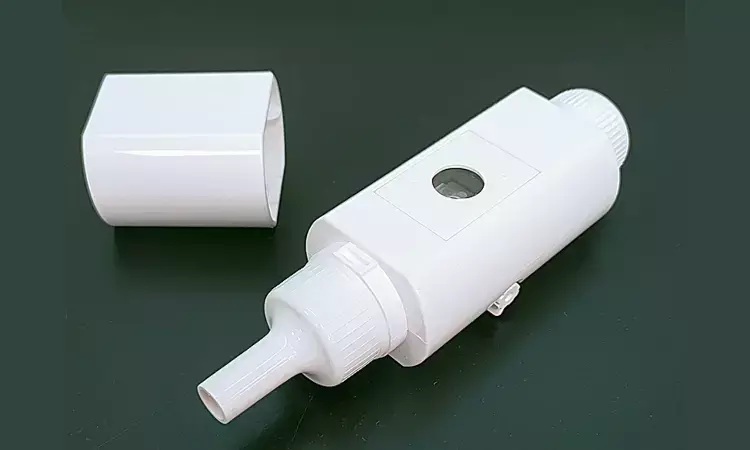- Home
- Medical news & Guidelines
- Anesthesiology
- Cardiology and CTVS
- Critical Care
- Dentistry
- Dermatology
- Diabetes and Endocrinology
- ENT
- Gastroenterology
- Medicine
- Nephrology
- Neurology
- Obstretics-Gynaecology
- Oncology
- Ophthalmology
- Orthopaedics
- Pediatrics-Neonatology
- Psychiatry
- Pulmonology
- Radiology
- Surgery
- Urology
- Laboratory Medicine
- Diet
- Nursing
- Paramedical
- Physiotherapy
- Health news
- Fact Check
- Bone Health Fact Check
- Brain Health Fact Check
- Cancer Related Fact Check
- Child Care Fact Check
- Dental and oral health fact check
- Diabetes and metabolic health fact check
- Diet and Nutrition Fact Check
- Eye and ENT Care Fact Check
- Fitness fact check
- Gut health fact check
- Heart health fact check
- Kidney health fact check
- Medical education fact check
- Men's health fact check
- Respiratory fact check
- Skin and hair care fact check
- Vaccine and Immunization fact check
- Women's health fact check
- AYUSH
- State News
- Andaman and Nicobar Islands
- Andhra Pradesh
- Arunachal Pradesh
- Assam
- Bihar
- Chandigarh
- Chattisgarh
- Dadra and Nagar Haveli
- Daman and Diu
- Delhi
- Goa
- Gujarat
- Haryana
- Himachal Pradesh
- Jammu & Kashmir
- Jharkhand
- Karnataka
- Kerala
- Ladakh
- Lakshadweep
- Madhya Pradesh
- Maharashtra
- Manipur
- Meghalaya
- Mizoram
- Nagaland
- Odisha
- Puducherry
- Punjab
- Rajasthan
- Sikkim
- Tamil Nadu
- Telangana
- Tripura
- Uttar Pradesh
- Uttrakhand
- West Bengal
- Medical Education
- Industry
Quick COVID breathalyzer could allow mass screening in public places

According to experts, bringing an end to the pandemic will require rapid screening of people attending large gatherings, such as conferences and weddings. Even those who are asymptomatic can still transmit COVID-19 to others, making it important to identify and isolate them until they are no longer contagious. Now, researchers reporting in ACS Nano have developed a prototype "breathalyzer" that can sensitively and accurately diagnose COVID-19, even in asymptomatic individuals, in less than 5 minutes.
Currently, the "gold standard" for COVID-19 testing is a technique called reverse transcription-polymerase chain reaction (RT-PCR), which is slow, requires an uncomfortable nasopharyngeal swab for sample collection and must be performed in a lab. The rapid antigen test is much quicker but has a higher rate of false negatives and positives. Scientists have also developed breathalyzer-type tests for COVID-19, which rely on differences in concentrations of volatile organic compounds exhaled by those infected with the coronavirus, but most require bulky, nonportable instruments for analysis. Xing Yi Ling and colleagues wanted to develop a quick, convenient and accurate breathalyzer test that would be suitable for on-site screening of large numbers of people.
The researchers designed a handheld breathalyzer that contains a chip with three surface-enhanced Raman scattering (SERS) sensors attached to silver nanocubes. When a person exhales into the device for 10 seconds, compounds in their breath chemically interact with the sensors. Then, the researchers load the breathalyzer into a portable Raman spectrometer that characterizes the bound compounds based on changes to the molecular vibrations of the SERS sensors.
The team found that Raman spectra from COVID-positive and -negative people were different in regions responsive to ketones, alcohols and aldehydes, which they used to develop a statistical model for COVID diagnosis. They tested the breathalyzer on 501 people in hospitals and airports in Singapore, who were shown by RT-PCR to be negative (85.2%), positive and symptomatic (8.6%), or positive and asymptomatic (6.2%) for the coronavirus. The method had a 3.8% false-negative and 0.1% false-positive rate, comparable to RT-PCR tests, but it could be completed on-site in less than 5 minutes. The breathalyzer could someday be a new tool to reduce the silent spread of COVID-19 in communities, the researchers say.
The authors acknowledge funding from the National Medical Research Council, Singapore, A*STAR Singapore, the Max Planck Institute-Nanyang Technological University Joint Lab and Nanyang Technological University.
The American Chemical Society (ACS) is a nonprofit organization chartered by the U.S. Congress. ACS' mission is to advance the broader chemistry enterprise and its practitioners for the benefit of Earth and all its people. The Society is a global leader in promoting excellence in science education and providing access to chemistry-related information and research through its multiple research solutions, peer-reviewed journals, scientific conferences, eBooks and weekly news periodical Chemical & Engineering News. ACS journals are among the most cited, most trusted and most read within the scientific literature; however, ACS itself does not conduct chemical research. As a leader in scientific information solutions, its CAS division partners with global innovators to accelerate breakthroughs by curating, connecting and analyzing the world's scientific knowledge. ACS' main offices are in Washington, D.C., and Columbus, Ohio.
https://pubs.acs.org/doi/10.1021/acsnano.1c09371
Hina Zahid Joined Medical Dialogue in 2017 with a passion to work as a Reporter. She coordinates with various national and international journals and association and covers all the stories related to Medical guidelines, Medical Journals, rare medical surgeries as well as all the updates in the medical field. Email: editorial@medicaldialogues.in. Contact no. 011-43720751
Dr Kamal Kant Kohli-MBBS, DTCD- a chest specialist with more than 30 years of practice and a flair for writing clinical articles, Dr Kamal Kant Kohli joined Medical Dialogues as a Chief Editor of Medical News. Besides writing articles, as an editor, he proofreads and verifies all the medical content published on Medical Dialogues including those coming from journals, studies,medical conferences,guidelines etc. Email: drkohli@medicaldialogues.in. Contact no. 011-43720751


